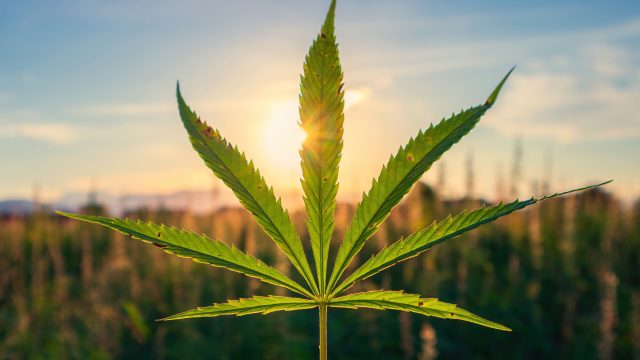
One of the latest THC-derived molecules to make recent headlines is THC-O acetate (THC-O).
It’s a complicated chemical process to make the compound, but the end result is a potent psychedelic. THC-O was one of the drugs used by the U.S. military during its infamous Edgewater Arsenal human experiments, alongside LSD and PCP. Over the years, many have touted THC-O as the one true psychedelic cannabinoid.
But new research from the University of Buffalo (UB) discounts those claims. The study, published in Journal for Psychoactive Drugs, indicates that the psychedelic properties of THC-O might be more folklore than fact.
The study’s lead author, Daniel J. Kruger, an associate professor and research scientist in the Jacobs School of Medicine and Biomedical Sciences at UB, wrote in a press release that his team set out to find evidence that THC-O has a psychedelic effect.
“And the answer is not so much,” Kruger wrote.
THC-O is similar to Delta-8 THC in that the 2018 Farm Bill technicallylegalized it (Weed Between the Lines, “Protecting cannabis farmers,” July 22, 2021). That iteration of the bill legalized growing industrial hemp — the non-psychoactive cousin of marijuana — and all hemp products. It also permitted all hemp derivatives, extracts, cannabinoids, isomers, acids, salts and salts of isomers under .3% THC (Weed Between the Lines, “The Delta-8 gray area,” July 8, 2021).
THC-O can be derived from Delta-8 THC similarly to how the acetate compound is derived from cannabis extracts (such as hash or wax), so THC-O can be produced under that .3% THC limit, which has created some legal ambiguity around this molecule. Because like Delta-8 THC, THC-O still gets you high.
In fact, the very first chemical synthesis instructions for this molecule come from D. Gold’s 1974 book Cannabis Alchemy: Art of Modern Hashmaking: “The effect of the acetate is more spiritual and psychedelic than that of the ordinary product. The most unique property of this material is that there is a delay of about 30 minutes before its effects are felt.”
But research from UB disputes Gold’s nearly 50-year-old description. The study indicates that, despite THC-O’s delayed onset time, it doesn’t produce the same kinds of “mystical” experiences that classical psychedelics like mushrooms and LSD can produce.
Researchers at UB polled more than 300 participants about their experiences with THC-O. The questionnaire asked respondents to rate the extent to which they experienced an altered sense of time, anxiety, difficulty concentrating, euphoria, hallucinations, pain relief, paranoia and relaxation.
Participants also completed a Mystical Experience Questionnaire (MEQ). Developed by Walter Pahnke in the 1960s, MEQs have become a classic instrument for assessing psychedelic experiences and their impacts on people, measuring subjective feelings of unity or interconnectedness, transcendence of time, inner subjectivity, objectivity, sacredness, paradoxicality and so on.
Subjects in the UB study scored very low on their MEQs. When asked directly about their encounter with the compound, “79% responded that using THC-Oac is ‘not at all’ or ‘a little’ of a psychedelic experience.”
Instead, the most common side effects reported were moderate relaxation, euphoria and pain relief — which sounds more like a standard cannabis high than a psychedelic trip.
“People have to be careful,” Kruger says. “It’s possible that some of these extreme effects are the result of some sort of contamination, and that’s one of the real dangers of these products if you don’t really know what’s in them.”
The DEA still lists THC-O as a Schedule I substance. It’s also been made illegal on the state level in Alaska, Arizona, Arkansas, Delaware, Idaho, Iowa, Mississippi, Montana, New York, Rhode Island, Utah, Vermont, and right here in Colorado.
“There’s tons of interest in Delta-8 and THC-O-acetate, and lots of claims being made about them with virtually no research,” Kruger says. “They’re really new to the consumer market and cannabis still has this weird mix of policies where it’s illegal at the federal level, so we don’t have national regulations.”














